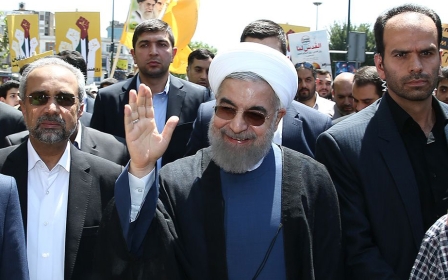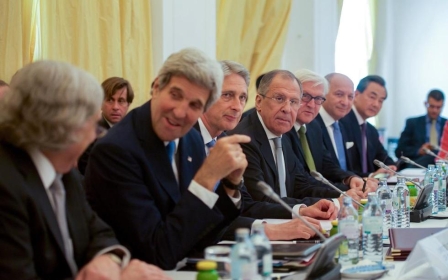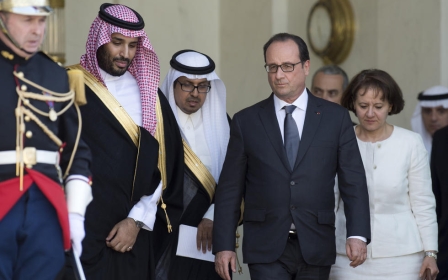Warnings of 'no time-limit' as Iran talks hit 15th day

World powers huddled again Saturday behind closed doors on the 15th day of negotiations seeking a deal to curb Iran's nuclear ambitions, with no sign of any end to the nail-biting deadlock.
Despite a warning from US Secretary of State John Kerry that he would not sit at the negotiating table forever, an Iranian official told AFP the talks, now entering their third week, could stretch on and on.
"We have no time-limit in order to reach a good deal," the senior Iranian official said, asked if the negotiations could be formally extended again in a bid to end the current deadlock.
Iran and the so-called the P5+1 group - Britain, China, France, Germany, Russia and the US - are seeking to curtail Tehran's ability to develop nuclear weapons in exchange for relief from painful sanctions.
After a very public blame game about the reasons behind the stalemate, on Friday Kerry had offered a glimmer of hope that some progress may be being made saying some outstanding issues had been resolved.
But the top US diplomat emerged from almost 90 minutes of fresh talks Saturday morning with his Iranian counterpart Mohammad Javad Zarif and almost immediately tweeted that things remained tough.
"Met with @FedericaMog and @JZarif this AM. Still have difficult issues to resolve," he said in his Tweet.
Despite almost two years of negotiations, this round of talks in Vienna touted as the last push for a historic accord to end a 13-year standoff, has moved at a snail's pace in an indication of how difficult the remaining issues are.
France's Foreign Minister Laurent Fabius also arrived back in the Austrian capital on Saturday to rejoin Germany's Frank-Walter Steinmeier, while their British counterpart was expected back too. It remained unclear when the Russian and Chinese foreign ministers would return to the city.
Time to call it quits?
With many politicians on both sides of the Atlantic openly questioning whether it was time to walk away, Mogherini tweeted her thanks to the Austrian people for their "hospitality.
"Vienna, still working day and night on #IranTalks," she said in her Tweet.
The toughest problems have been left to last, including a mechanism for lifting interlocking EU, US and UN sanctions, as well as ways to ensure Iran can have a peaceful nuclear programme for its own energy needs.
A new headache emerged in recent days, when the Iranian delegation insisted that a UN arms embargo must be lifted once a deal is reached, something that Western countries are wary about given Iran's alleged role in several Middle East conflicts.
After a video conference with US President Barack Obama on Wednesday, Iranian officials complained that the US delegation had changed some of their positions.
Iranian and European officials, however, told MEE contributor Gareth Porter earlier this week that the most challenging issues linked to lifting the sanctions had been overcome.
Expert Kelsey Davenport, from the Washington-based Arms Control Association, warned: "Now is not the time for brinksmanship or a hardening of positions."
"This is an historic moment and there could be serious repercussions if negotiators fail to seize this opportunity to get a good deal. Taking a few additional days to continue talking is far better than walking away from the table," she told AFP.
"At the same time, these last decisions will not get easier with time."
Middle East Eye propose une couverture et une analyse indépendantes et incomparables du Moyen-Orient, de l’Afrique du Nord et d’autres régions du monde. Pour en savoir plus sur la reprise de ce contenu et les frais qui s’appliquent, veuillez remplir ce formulaire [en anglais]. Pour en savoir plus sur MEE, cliquez ici [en anglais].




